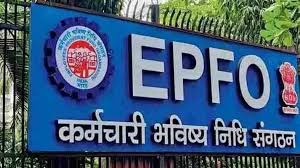Telecom matters back to Consumer Commissions
This judgment is not the result of incorporating word telecom in the Consumer Protection Act 2019 but a revisit by the apex court three junges bench on the merit of the case as it stands under earlier Consumer Protection Act 1986 also. Apex court reversed the order finding it erroneous in view of the applicability of then prevailing law
Dr Prem Lata ,Legal Head VOICE
It was a historic day when the Hon’ble Apex Court after long thirteen years declared that Consumer Protection Act is a Specific act and not a General act. The three judges bench comprising Justices DY Chandrachud, Surya Kant and Vikram Nath further observed that the existence of an Arbitral clause under the Indian Telegraph Act, 1885, will not oust the jurisdiction of the consumer forum.
The above order was in appeal arising out of judgment dated 26 May 2016 of the National Consumer Disputes Redressal Commission
Facts of the case
A dispute between a consumer and Vodafone Idea Cellular Ltd started On 25 May 2014, at Ahmedabad District consumer forum with allegation of deficiency in services.The telecom company raised an objection to the maintainability of the complaint by placing reliance on a Supreme Court judgment in General Manager, Telecom v. M Krishnan and Another (2009) 8 SCC 481 This objection was dismissed at District Forum,state commission and also National commission holding that a private service provider is not a ‘telegraph authority’ for the purposes of Section 7B of the Indian Telegraph Act 1885. Matter comes to Supreme Court refering to Section 7B, of the act which provides disputes concerning a telegraph line, appliance or apparatus, between the telegraph authority and the person for whose benefit the line, has to be determined by arbitration.
Background of General Manager, Telecom v. M Krishnan and Another (2009) 8 SCC 481 T
It was as back as in 1992 when National Commission in a case before it for adjudication was to decide on the issue as to whether existence of a remedy by way of arbitration in the Indian Telegraph Act preclude an aggrieved consumer to seek remedy under the Consumer Protection Act.While deciding this matter between the Telecom Distt.Manager ,Patna and Bihar State ware housing corporation 1(1991)CPJ 379, National commission held that consumer can seek remedy under the Consumer Protection Act.But SC reversed the order stating Indian Telegraph is specific act and hence sec 7 B of the act will prevail over CP Act
Again on another occasion in the case of District Manager ,Telephones,Patna V Dr Tarun Barthvar 1(1992)CPJ 47, the question before the commission was as to whether the consumer forum has the jurisdiction to decide a dispute involving meter reading or excess billing which are covered under section 7 B of the Indian Telegraph Act 1885, the commission held -yes
Further in a case of Mahanagar Telephone Nigam Ltd V Ghevar Chand Seasmal Sonigara,1992(!!)CPR 427;(1992)CPJ ,476 the question was more specific as to whether it was not mandatory for the complainant to invoke the arbitration clause under the Telegraph Act National Commission held –no.
The similar issue was raised in case of Union of India V Dr B S Sidhu 1992,1992(1)CPR, 537;1 (1992)CPJ,208 ,in a case of Govt of India ,Secretary,department of Telecom V Satya Narayan Lal,(111)(1993)CPJ, 335,and also in case of Union of India through Rajkot Telephone V Dhanji Bai( 1994)11,CPR, 664;111(1994)CPJ,62, National Commission in all the above cases held that consumer court has the jurisdiction to deal all such cases inspite of arbitration clause in the telegraph act .
In yet another case of Divisional Engg. Telecom Moradabad V Virender Kumar (1997)11,CPJ ,60 ,National Commission confirmed the jurisdiction of consumer fora.
Supreme court also held in number of cases while deciding the various issues under consumer protection act since the inception of the act that section three of the consumer protection act gives additional remedy to the consumer apart from the other provisions available to him .
It is how till the latest judgement pronounced by the Honorable Supreme Court on 1.9.2009, Consumer foras had been dealing with all telecom matters filed by consumers.
Supreme in civil appeal no 7687 of 2004 in the case of GM Telecom V M Krishanan barred the jurisdiction of consumer foras and held that such disputes will be decided by arbitrator under section 7B of Indian Telegraph Act .The award so made shall be final and not open to challenge before any court /forum The arbitrator shall be appointed by the Central Govt either specifically for determination of referred dispute or generally for the determination of disputes under this section.
Apex court has further remarked that it is a well settled law that special law overrides the general law,hence high court was not correct in its approach
In that context, a two-Judge Bench of this Court thus held
“In our opinion when there is a special remedy provided in Section 7-B of the Telegraph Act regarding disputes in respect of telephone bills, then the remedy under the Consumer Protection Act is by implication barred”
Further ,when SC said special act prevails over general law ,huge number of cases related to banks,railways ,societies and other specific acts started pouring into consumer forums from all those who were settled by supreme court various orders that consumer protection act is an additional remedy to consumers
After this order question was as to whether this bar applies on private players also on these private companies came into the field of tele communication.In the notification allotting licence to theses companies ,it is said at clause 1(b) that these licensee(s)are to always comply with the provisions of the act or any other law for the time being in force meaning thereby that these private licensee are to adhere with section 7-B of the Indian telegraph act. The question was will the central gov make arrangement of Arbitrators for all private players also when consumers are left with no remedy but the arbitration provision which is final for them, not open for challenge before any court of law.Not only that ,it is quiet possible that no arbitrator is appointed on the request of aggrieved consumers Even the provisions under the Arbitration and Conciliation act 1996 for appointment of Arbitrator through civil court shall be of no avail to the consumers as such exercise it self is a full fledge case in it self .
Subsequently a letter from the Department of Telecommunication dated 24 January 2014 was issued and stated that the judgment in M Krishnan (supra) on Section 7B of the Act of 1885 would not be applicable to a private service provider since it is not a ‘Telegraph Authority”.
But observation by SC that special act prevails over general law ,huge number of cases related to banks,railways ,societies and other specific acts started pouring into consumer forums from all those who were settled by supreme court various orders that consumer protection act is an additional remedy to consumers. Ministry of Consumer Affairs then issued notification and circulated among all Consumer forums and commissions to accept Telecom cases for adjudicating ,Consumer courts still did not accept cases because article 141 bind them to follow apex court precedence .Due to this reason parliament had to incorporate telecom word in new act consumer protection act 2019
Now two major questions are again the issues before the same apex court but now before the larger bench –
- Whether consumer protection act is a general law or specific law.
- Whether Arbitration clause bars the jurisdiction of consumer commissions
On the first point The court disagreed with the view taken in M. Krishnan (supra)
“The decision is incorrect on two grounds. First, it failed to recognize that the Act of 1986 is not a general law but a special law that has been enacted by Parliament specifically to protect the interest of consumers. Second, even if it is assumed that the Act of 1986 is a general law, it is a settled position of law that if there is any inconsistency between two legislations, the later law, even if general in nature, would override an earlier special law.”
On the second issue of bar by arbitration clause ,argument was extended with force that incorporation of telegraph services in the Consumer Protection Act, 2019 by the parliament indicate that legislature has considered jurisdiction of consumer commissions over telecom matters,Hon’ble Supreme court did not accept it the only reason for their stand . Court discussed the provisions of the act as they were in the act 1986 itself and confirmed their stand on making illustration of Section 2(s) of the earlier Act of 1986 The apex Court held that the use of the expression ‘includes but not limited to’is very much important to understand the spirit and purpose of law. By adopting language which provides that the expression ‘service’ would mean service of any description which is made available to potential users further confirms the intention of law makers
In Emaar MGF Land Ltd. v. Aftab Singh, this Court has held that an arbitration agreement governed by the Arbitration and Conciliation Act 1996 will 10 “Act of 2019” 11 Section 2(42) of the Consumer Protection Act, 2019 is as follows: – “service” means service of any description which is made available to potential users and includes, but not limited to, the provision of facilities in connection with banking, financing, insurance, transport, processing, supply of electrical or other energy, telecom, boarding or lodging or both, housing construction, entertainment, amusement or the purveying of news or other information, but does not include the rendering of any service free of charge or under a contract of personal service”; 12 (2019) 12 SCC 751 10 not oust the jurisdiction of the consumer forum to entertain a complaint of deficiency of goods or services. The Court relied on Section 313 of the Act of 1986, which provides that the provisions of the Act are in addition to and not in derogation of the provisions of any other enactment. The following observations of this Court are relevant: “19. Section 3 of the Consumer Protection Act provided that the provisions of this Act shall be in addition to and not in derogation of the provisions of any other law for the time being in force. Noticing the object and purpose of the Act as well as Section 3, this Court in Thirumurugan Coop. Agricultural Credit Society v. M. Lalitha [Thirumurugan Coop. Agricultural Credit Society v. M. Lalitha, (2004) 1 SCC 305] , laid down the following in paras 11 and 12 : (SCC p. 312) “11. From the Statement of Objects and
n Ajoy Kumar Banerjee v. Union of India14, a three-judge Bench of this Court observed: “38…As mentioned hereinbefore if the Scheme was held to be valid, then the question what is the general law and what is the special law and which law in case of conflict would prevail would have arisen and that would have necessitated the application of the principle Generalia specialibus non derogant. The general rule to be followed in case of conflict between two statutes is that the later abrogates the earlier one. In other words, a prior special law would yield to a later general law, if either of the two following conditions is satisfied:
n Ajoy Kumar Banerjee v. Union of India14, a three-judge Bench of this Court observed: “38…As mentioned hereinbefore if the Scheme was held to be valid, then the question what is the general law and what is the special law and which law in case of conflict would prevail would have arisen and that would have necessitated the application of the principle Generalia specialibus non derogant. The general rule to be followed in case of conflict between two statutes is that the later abrogates the earlier one. In other words, a prior special law would yield to a later general law, if either of the two following conditions is satisfied:



